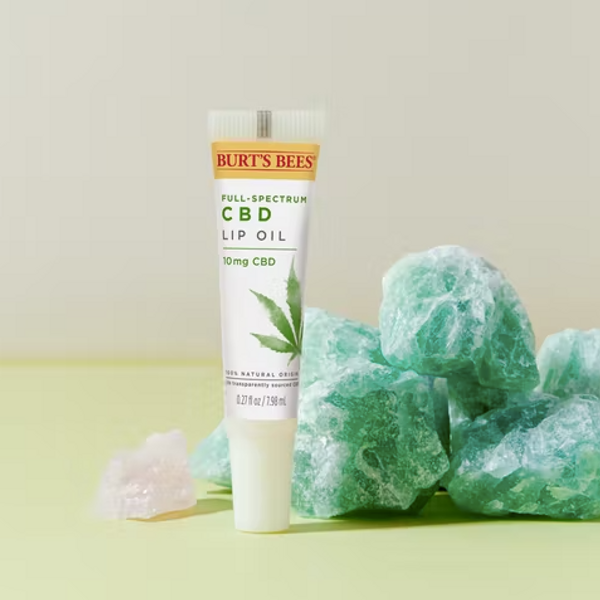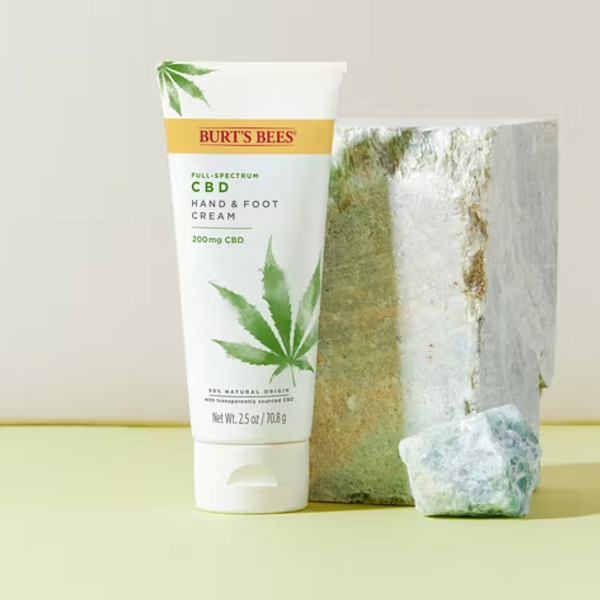Patients, advocates and enthusiasts, LISTEN UP! The U.S. House Of Representatives is set to vote on historic legislation. The MORE Act, which legalizes marijuana on the federal level, will be up for vote and based on available data, looks like it will pass with an overwhelming majority. Unfortunately, it will still need a passing vote in the Senate, something that will be much harder to achieve, but with the potential for a democratic administration in the White House next year, this could finally be the beginning of a new era of legalization in America.
This bill is now being championed by Kamala Harris, Vice President hopeful who was just picked as a running mate to Joe Biden. If Harris truly pushes this legislation, it would mark a significant change in policy for the senator from California. While serving as Attorney General of California, Harris maintained a hardline against drugs, especially marijuana.
Based on interviews and recent public appearances, Biden has made it clear that he is not in favor of full legalization in the United States. His position, for the time being, is to leave the decision up to the States, and no longer fund federal agency programs that target legal cannabis businesses across the country. Currently, President Trump has continued in the footsteps of his predecessor, Barack Obama, aggressively targeting and shutting down all illegal dispensaries and grows in California.
MORE Act: Full Text
Below you will find the complete MORE Act. I encourage you to take the time to read it, digest the information, and if you haven't already, contact your local representatives and persuade them to vote yes! This is one of the most important pieces of legislation of our lifetime and if there was ever a time to for action, it is now!
SECTION 1. SHORT TITLE.
This Act may be cited as the "Marijuana Opportunity Reinvestment and Expungement Act of 2019" or the "MORE Act of 2019".
SEC. 2. DECRIMINALIZATION OF CANNABIS.
(a) Cannabis Removed From Schedule Of Controlled Substances.—
(1) REMOVAL IN STATUTE.—Subsection (c) of schedule I of section 202(c) of the Controlled Substances Act (21 U.S.C. 812) is amended—
(A) by striking "(10) Marihuana."; and
(B) by striking "(17) Tetrahydrocannabinols, except for tetrahydrocannabinols in hemp (as defined in section 297A of the Agricultural Marketing Act of 1946).".
(2) REMOVAL FROM SCHEDULE.—Not later than 180 days after the date of the enactment of this Act, the Attorney General shall finalize a rulemaking under section 201(a)(2) removing marihuana and tetrahydrocannabinols from the schedules of controlled substances. Marihuana and tetrahydrocannabinols shall each be deemed to be a drug or other substance that does not meet the requirements for inclusion in any schedule. A rulemaking under this paragraph shall be considered to have taken effect as of the date of enactment of this Act for purposes of any offense committed, case pending, conviction entered, and, in the case of a juvenile, any offense committed, case pending, and adjudication of juvenile delinquency entered before, on, or after the date of enactment of this Act.
(b) Conforming Amendments To Controlled Substances Act.—The Controlled Substances Act (21 U.S.C. 801 et seq.) is amended—
(1) in section 102(44) (21 U.S.C. 802(44)), by striking "marihuana,";
(2) in section 401(b) (21 U.S.C. 841(b))—
(A) in paragraph (1)—
(i) in subparagraph (A)—
(I) in clause (vi), by inserting "or" after the semicolon;
(II) by striking clause (vii); and
(III) by redesignating clause (viii) as clause (vii);
(ii) in subparagraph (B)—
(I) in clause (vi), by inserting "or" after the semicolon;
(II) by striking clause (vii); and
(III) by redesignating clause (viii) as clause (vii);
(iii) in subparagraph (C), in the first sentence, by striking "subparagraphs (A), (B), and (D)" and inserting "subparagraphs (A) and (B)";
(iv) by striking subparagraph (D);
(v) by redesignating subparagraph (E) as subparagraph (D); and
(vi) in subparagraph (D)(i), as so redesignated, by striking "subparagraphs (C) and (D)" and inserting "subparagraph (C)";
(B) by striking paragraph (4); and
(C) by redesignating paragraphs (5), (6), and (7) as paragraphs (4), (5), and (6), respectively;
(3) in section 402(c)(2)(B) (21 U.S.C. 842(c)(2)(B)), by striking ", marihuana,";
(4) in section 403(d)(1) (21 U.S.C. 843(d)(1)), by striking ", marihuana,";
(5) in section 418(a) (21 U.S.C. 859(a)), by striking the last sentence;
(6) in section 419(a) (21 U.S.C. 860(a)), by striking the last sentence;
(7) in section 422(d) (21 U.S.C. 863(d))—
(A) in the matter preceding paragraph (1), by striking "marijuana,"; and
(B) in paragraph (5), by striking ", such as a marihuana cigarette,"; and
(8) in section 516(d) (21 U.S.C. 886(d)), by striking "section 401(b)(6)" each place the term appears and inserting "section 401(b)(5)".
(c) Other Conforming Amendments.—
(1) NATIONAL FOREST SYSTEM DRUG CONTROL ACT OF 1986.—The National Forest System Drug Control Act of 1986 (16 U.S.C. 559b et seq.) is amended—
(A) in section 15002(a) (16 U.S.C. 559b(a)) by striking "marijuana and other";
(B) in section 15003(2) (16 U.S.C. 559c(2)) by striking "marijuana and other"; and
(C) in section 15004(2) (16 U.S.C. 559d(2)) by striking "marijuana and other".
(2) INTERCEPTION OF COMMUNICATIONS.—Section 2516 of title 18, United States Code, is amended—
(A) in subsection (1)(e), by striking "marihuana,"; and
(B) in subsection (2) by striking "marihuana".
(d) Retroactivity.—The amendments made by this section to the Controlled Substances Act (21 U.S.C. 801 et seq.) are retroactive and shall apply to any offense committed, case pending, conviction entered, and, in the case of a juvenile, any offense committed, case pending, or adjudication of juvenile delinquency entered before, on, or after the date of enactment of this Act.
SEC. 3. DEMOGRAPHIC DATA OF CANNABIS BUSINESS OWNERS AND EMPLOYEES.
(a) In General.—The Bureau of Labor Statistics shall regularly compile, maintain, and make public data on the demographics of—
(1) individuals who are business owners in the cannabis industry; and
(2) individuals who are employed in the cannabis industry.
(b) Demographic Data.—The data collected under subsection (a) shall include data regarding—
(1) age;
(2) certifications and licenses;
(3) disability status;
(4) educational attainment;
(5) family and marital status;
(6) nativity;
(7) race and Hispanic ethnicity;
(8) school enrollment;
(9) veteran status; and
(10) sex.
(c) Confidentiality.—The name, address, and other identifying information of individuals employed in the cannabis industry shall be kept confidential by the Bureau and not be made available to the public.
(d) Definitions.—In this section:
(1) CANNABIS.—The term "cannabis" means either marijuana or cannabis as defined under the State law authorizing the sale or use of cannabis in which the individual or entity is located.
(2) CANNABIS INDUSTRY.—The term "cannabis industry" means an individual or entity that is licensed or permitted under a State or local law to engage in commercial cannabis-related activity.
(3) OWNER.—The term "owner" means an individual or entity that is defined as an owner under the State or local law where the individual or business is licensed or permitted.
SEC. 4. CREATION OF OPPORTUNITY TRUST FUND AND IMPOSITION OF TAX ON CANNABIS PRODUCTS.
(a) Trust Fund.—
(1) ESTABLISHMENT.—Subchapter A of chapter 98 of the Internal Revenue Code of 1986 is amended by adding at the end the following new section:
"SEC. 9512. OPPORTUNITY TRUST FUND.
"(a) Creation Of Trust Fund.—There is established in the Treasury of the United States a trust fund to be known as the 'Opportunity Trust Fund' (referred to in this section as the 'Trust Fund'), consisting of such amounts as may be appropriated or credited to such fund as provided in this section or section 9602(b).
"(b) Transfers To Trust Fund.—There are hereby appropriated to the Trust Fund amounts equivalent to the net revenues received in the Treasury from the tax imposed by section 5701(h).
"(c) Expenditures.—Amounts in the Trust Fund shall be available, without further appropriation, only as follows:
"(1) 50 percent to the Attorney General to carry out section 3052(a) of part OO of the Omnibus Crime Control and Safe Streets Act of 1968.
"(2) 10 percent to the Attorney General to carry out section 3052(b) of part OO of the Omnibus Crime Control and Safe Streets Act of 1968.
"(3) 20 percent to the Administrator of the Small Business Administration to carry out section 5(b)(1) of the Marijuana Opportunity Reinvestment and Expungement Act of 2019.
"(4) 20 percent to the Administrator of the Small Business Administration to carry out section 5(b)(2) of the Marijuana Opportunity Reinvestment and Expungement Act of 2019"..".
(2) CLERICAL AMENDMENT.—The table of sections for subchapter A of chapter 98 of such Code is amended by adding at the end the following new item:
"Sec. 9512. Opportunity trust fund."
(b) Imposition Of Tax.—
(1) IN GENERAL.—Section 5701 of the Internal Revenue Code of 1986 is amended by redesignating subsection (h) as subsection (i) and by inserting after subsection (g) the following new subsection:
"(h) Cannabis Products.—On cannabis products, manufactured in or imported into the United States, there shall be imposed a tax equal to 5 percent of the price for which sold.".
(2) CANNABIS PRODUCT DEFINED.—Section 5702 of such Code is amended by adding at the end the following new subsection:
"(q) Cannabis Product.—
"(1) IN GENERAL.—Except as provided in paragraph (2), the term 'cannabis product' means any cannabis or any article which contains cannabis or any derivative thereof.
"(2) EXCEPTION.—The term 'cannabis product' shall not include any medicine or drug that is a prescribed drug (as such term is defined in section 213(d)(3)).
"(3) CANNABIS.—The term 'cannabis'—
"(A) means all parts of the plant Cannabis sativa L., whether growing or not; the seeds thereof; the resin extracted from any part of such plant; and every compound, manufacture, salt, derivative, mixture, or preparation of such plant, its seeds or resin; and
"(B) does not include—
"(i) hemp, as defined in section 297A of the Agricultural Marketing Act of 1946; or
"(ii) the mature stalks of such plant, fiber produced from such stalks, oil or cake made from the seeds of such plant, any other compound, manufacture, salt, derivative, mixture, or preparation of such mature stalks (except the resin extracted therefrom), fiber, oil, or cake, or the sterilized seed of such plant which is incapable of germination.".
(3) CANNABIS PRODUCTS TREATED AS TOBACCO PRODUCTS.—Section 5702(c) of such Code is amended by striking "and roll-your-own tobacco" and inserting "roll-your-own tobacco, and cannabis products".
(4) MANUFACTURER OF CANNABIS PRODUCTS TREATED AS MANUFACTURER OF TOBACCO PRODUCTS.—Section 5702 of such Code is amended by adding at the end the following new subsection:
"(r) Manufacturer Of Cannabis Products.—
"(1) IN GENERAL.—Any person who plants, cultivates, harvests, produces, manufactures, compounds, converts, processes, prepares, or packages any cannabis product shall be treated as a manufacturer of cannabis products (and as manufacturing such cannabis product).
"(2) EXCEPTION.—Paragraph (1) shall not apply with respect to any cannabis product which is for such person's own personal consumption or use.
"(3) APPLICATION OF RULES RELATED TO MANUFACTURERS OF TOBACCO PRODUCTS.—Any reference to a manufacturer of tobacco products, or to manufacturing tobacco products, shall be treated as including a reference to a manufacturer of cannabis products, or to manufacturing cannabis products, respectively.".
(5) APPLICATION OF CERTAIN RULES FOR DETERMINING PRICE.—Section 5702(l) of such Code is amended—
(A) by striking "section 5701(a)(2)" and inserting "subsections (a)(2) and (h) of section 5701"; and
(B) by inserting "And Cannabis Products" after "Cigars" in the heading thereof.
(6) CONFORMING AMENDMENT.—Section 5702(j) of such Code is amended by adding at the end the following new sentence: "In the case of a cannabis product, the previous sentence shall be applied by substituting 'from a facility of a manufacturer required to file a bond under section 5711' for 'from the factory or from internal revenue bond under section 5704'.".
(c) Effective Date.—
(1) IN GENERAL.—Except as otherwise provided in this subsection, the amendments made by this section shall apply to articles manufactured or imported in calendar quarters beginning more than one year after the date of the enactment of this Act.
(2) TRUST FUND.—The amendments made by subsection (a) shall take effect on the date of the enactment of this Act.
SEC. 5. OPPORTUNITY TRUST FUND PROGRAMS.
(a) Cannabis Justice Office; Community Reinvestment Grant Program.—
(1) CANNABIS JUSTICE OFFICE.—Part A of title I of the Omnibus Crime Control and Safe Streets Act of 1968 (34 U.S.C. 10101 et seq.) is amended by inserting after section 109 the following:
"SEC. 110. CANNABIS JUSTICE OFFICE.
"(a) Establishment.—There is established within the Office of Justice Programs a Cannabis Justice Office.
"(b) Director.—The Cannabis Justice Office shall be headed by a Director who shall be appointed by the Assistant Attorney General for the Office of Justice Programs. The Director shall report to the Assistant Attorney General for the Office of Justice Programs. The Director shall award grants and may enter into compacts, cooperative agreements, and contracts on behalf of the Cannabis Justice Office. The Director may not engage in any employment other than that of serving as the Director, nor may the Director hold any office in, or act in any capacity for, any organization, agency, or institution with which the Office makes any contract or other arrangement.
"(c) Employees.—
"(1) IN GENERAL.—The Director shall employ as many full-time employees as are needed to carry out the duties and functions of the Cannabis Justice Office under subsection (d). Such employees shall be exclusively assigned to the Cannabis Justice Office.
"(2) INITIAL HIRES.—Not later than 6 months after the date of enactment of this section, the Director shall—
"(A) hire no less than one-third of the total number of employees of the Cannabis Justice Office; and
"(B) no more than one-half of the employees assigned to the Cannabis Justice Office by term appointment that may after 2 years be converted to career appointment.
"(3) LEGAL COUNSEL.—At least one employee hired for the Cannabis Justice Office shall serve as legal counsel to the Director and shall provide counsel to the Cannabis Justice Office.
"(d) Duties And Functions.—The Cannabis Justice Office is authorized to—
"(1) administer the Community Reinvestment Grant Program; and
"(2) perform such other functions as the Assistant Attorney General for the Office of Justice Programs may delegate, that are consistent with the statutory obligations of this section.".
(2) COMMUNITY REINVESTMENT GRANT PROGRAM.—Title I of the Omnibus Crime Control and Safe Streets Act of 1968 (34 U.S.C. et seq.) is amended by adding at the end the following:
"PART OO—COMMUNITY REINVESTMENT GRANT PROGRAM"SEC. 3052. AUTHORIZATION.
"(a) In General.—The Director of the Cannabis Justice Office shall establish and carry out a grant program, known as the 'Community Reinvestment Grant Program', to provide eligible entities with funds to administer services for individuals most adversely impacted by the War on Drugs, including—
"(1) job training;
"(2) reentry services;
"(3) legal aid for civil and criminal cases, including expungement of cannabis convictions;
"(4) literacy programs;
"(5) youth recreation or mentoring programs; and
"(6) health education programs.
"(b) Substance Use Treatment Services.—The Community Reinvestment Grant Program established in subsection (a) shall provide eligible entities with funds to administer substance use treatment services for individuals most adversely impacted by the War on Drugs.
"SEC. 3053. FUNDING FROM OPPORTUNITY TRUST FUND.
"The Director shall carry out the program under this part using funds made available under section 9512(c)(1) and (2) of the Internal Revenue Code.
"SEC. 3054. DEFINITIONS.
"In this part:
"(1) The term 'cannabis conviction' means a conviction, or adjudication of juvenile delinquency, for a cannabis offense (as such term is defined in section 12(2) of the Marijuana Opportunity Reinvestment and Expungement Act of 2019).
"(2) The term 'substance use treatment' means an evidence-based, professionally directed, deliberate, and planned regimen including evaluation, observation, medical monitoring, harm reduction, and rehabilitative services and interventions such as pharmacotherapy, mental health services, and individual and group counseling, on an inpatient or outpatient basis, to help patients with substance use disorder reach remission and maintain recovery.
"(3) The term 'eligible entity' means a nonprofit organization, as defined in section 501(c)(3) of the Internal Revenue Code, that is representative of a community or a significant segment of a community with experience in providing relevant services to individuals most adversely impacted by the War on Drugs in that community.
"(4) The term 'individuals most adversely impacted by the War on Drugs' has the meaning given that term in section 5 of the Marijuana Opportunity Reinvestment and Expungement Act of 2019"..".
(b) Cannabis Opportunity Program; Equitable Licensing Grant Program.—
(1) CANNABIS OPPORTUNITY PROGRAM.—The Administrator of the Small Business Administration shall establish and carry out a program, to be known as the "Cannabis Opportunity Program" to provide any eligible State or locality funds to make loans under section 7(m) of the Small Business Act (15 U.S.C. 363(m)) to assist small business concerns owned and controlled by socially and economically disadvantaged individuals, as defined in section 8(d)(3)(C) of the Small Business Act (15 U.S.C. 637(d)(3)(C)) that operate in the cannabis industry.
(2) EQUITABLE LICENSING GRANT PROGRAM.—The Administrator of the Small Business Administration shall establish and carry out a grant program, to be known as the "Equitable Licensing Grant Program", to provide any eligible State of locality funds to develop and implement equitable cannabis licensing programs that minimize barriers to cannabis licensing and employment for individuals most adversely impacted by the War on Drugs, provided that each grantee includes in its cannabis licensing program at least four of the following:
(A) A waiver of cannabis license application fees for individuals who have had an income below 250 percent of the Federal Poverty Level for at least 5 of the past 10 years who are first-time applicants.
(B) A prohibition on the denial of a cannabis license based on a conviction for a cannabis offense that took place prior to State legalization of cannabis or the date of enactment of this Act, as appropriate.
(C) A prohibition on criminal conviction restrictions for licensing except with respect to a conviction related to owning and operating a business.
(D) A prohibition on cannabis license holders engaging in suspicionless cannabis drug testing of their prospective or current employees, except with respect to drug testing for safety-sensitive positions, as defined under the Omnibus Transportation Testing Act of 1991.
(E) The establishment of a cannabis licensing board that is reflective of the racial, ethnic, economic, and gender composition of the State or locality, to serve as an oversight body of the equitable licensing program.
(3) DEFINITIONS.—In this subsection:
(A) The term "individual most adversely impacted by the War on Drugs" means an individual—
(i) who has had an income below 250 percent of the Federal Poverty Level for at least 5 of the past 10 years; and
(ii) has been arrested for or convicted of the sale, possession, use, manufacture, or cultivation of cannabis or a controlled substance (except for a conviction involving distribution to a minor), or whose parent, sibling, spouse, or child has been arrested for or convicted of such an offense.
(B) The term "eligible State or locality" means a State or locality that has taken steps to—
(i) create an automatic process, at no cost to the individual, for the expungement, destruction, or sealing of criminal records for cannabis offenses; and
(ii) eliminate violations or other penalties for persons under parole, probation, pre-trial, or other State or local criminal supervision for a cannabis offense.
(C) The term "State" means each of the several States, the District of Columbia, Puerto Rico, any territory or possession of the United States, and any Indian Tribe (as defined in section 201 of Public Law 90–294 (25 U.S.C. 1301) (commonly known as the "Indian Civil Rights Act of 1968")).
SEC. 6. AVAILABILITY OF SMALL BUSINESS ADMINISTRATION PROGRAMS AND SERVICES TO CANNABIS-RELATED LEGITIMATE BUSINESSES AND SERVICE PROVIDERS.
(a) Definitions Relating To Cannabis-Related Legitimate Businesses And Service Providers.—Section 3 of the Small Business Act (15 U.S.C. 632) is amended by adding at the end the following new subsection:
"(ff) Cannabis-Related Legitimate Businesses And Service Providers.—In this Act:
"(1) CANNABIS.—The term 'cannabis'—
"(A) means all parts of the plant Cannabis sativa L., whether growing or not; the seeds thereof; the resin extracted from any part of such plant; and every compound, manufacture, salt, derivative, mixture, or preparation of such plant, its seeds or resin; and
"(B) does not include—
"(i) hemp, as defined in section 297A of the Agricultural Marketing Act of 1946; or
"(ii) the mature stalks of such plant, fiber produced from such stalks, oil or cake made from the seeds of such plant, any other compound, manufacture, salt, derivative, mixture, or preparation of such mature stalks (except the resin extracted therefrom), fiber, oil, or cake, or the sterilized seed of such plant which is incapable of germination.
"(2) CANNABIS-RELATED LEGITIMATE BUSINESS.—The term 'cannabis-related legitimate business' means a manufacturer, producer, or any person or company that is a small business concern and that—
"(A) engages in any activity described in subparagraph (B) pursuant to a law established by a State or a political subdivision of a State, as determined by such State or political sub-division; and
"(B) participates in any business or organized activity that involves handling cannabis or cannabis products, including cultivating, producing, manufacturing, selling, transporting, displaying, dispensing, distributing, or purchasing cannabis or cannabis products.
"(3) SERVICE PROVIDER.—The term 'service provider'—
"(A) means a business, organization, or other person that—
"(i) sells goods or services to a cannabis-related legitimate business; or
"(ii) provides any business services, including the sale or lease of real or any other property, legal or other licensed services, or any other ancillary service, relating to cannabis; and
"(B) does not include a business, organization, or other person that participates in any business or organized activity that involves handling cannabis or cannabis products, including cultivating, producing, manufacturing, selling, transporting, displaying, dispensing, distributing, or purchasing cannabis or cannabis products.".
(b) Small Business Development Centers.—Section 21(c) of the Small Business Act (15 U.S.C. 648(c)) is amended by adding at the end the following new paragraph:
"(9) SERVICES FOR CANNABIS-RELATED LEGITIMATE BUSINESSES AND SERVICE PROVIDERS.—A small business development center may not decline to provide services to an otherwise eligible small business concern under this section solely because such concern is a cannabis-related legitimate business or service provider.".
(c) Women's Business Centers.—Section 29 of the Small Business Act (15 U.S.C. 656) is amended by adding at the end the following new subsection:
"(p) Services For Cannabis-Related Legitimate Businesses And Service Providers.—A women's business center may not decline to provide services to an otherwise eligible small business concern under this section solely because such concern is a cannabis-related legitimate business or service provider.".
(d) SCORE.—Section 8(b)(1)(B) of the Small Business Act (15 U.S.C. 637(b)(1)(B)) is amended by adding at the end the following new sentence: "The head of the SCORE program established under this subparagraph may not decline to provide services to an otherwise eligible small business concern solely because such concern is a cannabis-related legitimate business or service provider.".
(e) Veteran Business Outreach Centers.—Section 32 of the Small Business Act (15 U.S.C. 657b) is amended by adding at the end the following new subsection:
"(h) Services For Cannabis-Related Legitimate Businesses And Service Providers.—A Veteran Business Outreach Center may not decline to provide services to an otherwise eligible small business concern under this section solely because such concern is a cannabis-related legitimate business or service provider.".
(f) 7(a) Loans.—Section 7(a) of the Small Business Act (15 U.S.C. 636(a)) is amended by adding at the end the following new paragraph:
"(36) LOANS TO CANNABIS-RELATED LEGITIMATE BUSINESSES AND SERVICE PROVIDERS.—The Administrator may not decline to provide a guarantee for a loan under this subsection to an otherwise eligible small business concern solely because such concern is a cannabis-related legitimate business or service provider.".
(g) Disaster Loans.—Section 7(b) of the Small Business Act (15 U.S.C. 636(b)) is amended by inserting after paragraph (15) the following new paragraph:
(16) ASSISTANCE TO CANNABIS-RELATED LEGITIMATE BUSINESSES AND SERVICE PROVIDERS.—The Administrator may not decline to provide assistance under this subsection to an otherwise eligible borrower solely because such borrower is a cannabis-related legitimate business or service provider.".
(h) Microloans.—Section 7(m) of the Small Business Act (15 U.S.C. 636(m)) is amended by adding at the end the following new paragraph:
"(14) ASSISTANCE TO CANNABIS-RELATED LEGITIMATE BUSINESSES AND SERVICE PROVIDERS.—An eligible intermediary may not decline to provide assistance under this subsection to an otherwise eligible borrower solely because such borrower is a cannabis-related legitimate business or service provider.".
(i) State Or Local Development Company Loans.—Title V of the Small Business Investment Act of 1958 (15 U.S.C. 695 et seq.) is amended by adding at the end the following new
"SEC. 511. LOANS TO CANNABIS-RELATED LEGITIMATE BUSINESSES AND SERVICE PROVIDERS.
"The Administrator may not decline to provide a guarantee for a loan under this title to an otherwise eligible State or local development company solely because such State or local development company provides financing to an entity that is a cannabis-related legitimate business or service provider (as defined in section 3(ff) of the Small Business Act).".
SEC. 7. NO DISCRIMINATION IN THE PROVISION OF A FEDERAL PUBLIC BENEFIT ON THE BASIS OF CANNABIS.
(a) In General.—No person may be denied any Federal public benefit (as such term is defined in section 401(c) of the Personal Responsibility and Work Opportunity Reconciliation Act of 1996 (8 U.S.C. 1611(c))) on the basis of any use or possession of cannabis, or on the basis of a conviction or adjudication of juvenile delinquency for a cannabis offense, by that person.
(b) Security Clearances.—Federal agencies may not use past or present cannabis or marijuana use as criteria for granting, denying, or rescinding a security clearance.
SEC. 8. NO ADVERSE EFFECT FOR PURPOSES OF THE IMMIGRATION LAWS.
(a) In General.—For purposes of the immigration laws (as such term is defined in section 101 of the Immigration and Nationality Act), cannabis may not be considered a controlled substance, and an alien may not be denied any benefit or protection under the immigration laws based on any event, including conduct, a finding, an admission, addiction or abuse, an arrest, a juvenile adjudication, or a conviction, relating to cannabis, regardless of whether the event occurred before, on, or after the effective date of this Act.
(b) Cannabis Defined.—The term "cannabis"—
(1) means all parts of the plant Cannabis sativa L., whether growing or not; the seeds thereof; the resin extracted from any part of such plant; and every compound, manufacture, salt, derivative, mixture, or preparation of such plant, its seeds or resin; and
(2) does not include—
(A) hemp, as defined in section 297A of the Agricultural Marketing Act of 1946; or
(B) the mature stalks of such plant, fiber produced from such stalks, oil or cake made from the seeds of such plant, any other compound, manufacture, salt, derivative, mixture, or preparation of such mature stalks (except the resin extracted therefrom), fiber, oil, or cake, or the sterilized seed of such plant which is incapable of germination.
(c) Conforming Amendments To Immigration And Nationality Act.—The Immigration and Nationality Act (8 U.S.C. 1101 et seq.) is amended—
(1) in section 212(h), by striking "and subparagraph (A)(i)(II) of such subsection insofar as it relates to a single offense of simple possession of 30 grams or less of marijuana";
(2) in section 237(a)(2)(B)(i), by striking "other than a single offense involving possession for one's own use of 30 grams or less of marijuana";
(3) in section 101(f)(3), by striking "(except as such paragraph relates to a single offense of simple possession of 30 grams or less of marihuana)";
(4) in section 244(c)(2)(A)(iii)(II) by striking "except for so much of such paragraph as relates to a single offense of simple possession of 30 grams or less of marijuana";
(5) in section 245(h)(2)(B) by striking "(except for so much of such paragraph as related to a single offense of simple possession of 30 grams or less of marijuana)";
(6) in section 210(c)(2)(B)(ii)(III) by striking ", except for so much of such paragraph as relates to a single offense of simple possession of 30 grams or less of marihuana"; and
(7) in section 245A(d)(2)(B)(ii)(II) by striking ", except for so much of such paragraph as relates to a single offense of simple possession of 30 grams or less of marihuana".
SEC. 9. RESENTENCING AND EXPUNGEMENT.
(a) Expungement Of Federal Cannabis Offense Convictions For Individuals Not Under A Criminal Justice Sentence.—
(1) IN GENERAL.—Not later than 1 year after the date of the enactment of this Act, each Federal district shall conduct a comprehensive review and issue an order expunging each conviction or adjudication of juvenile delinquency for a Federal cannabis offense entered by each Federal court in the district before the date of enactment of this Act and on or after May 1, 1971. Each Federal court shall also issue an order expunging any arrests associated with each expunged conviction or adjudication of juvenile delinquency.
(2) NOTIFICATION.—To the extent practicable, each Federal district shall notify each individual whose arrest, conviction, or adjudication of delinquency has been expunged pursuant to this subsection that their arrest, conviction, or adjudication of juvenile delinquency has been expunged, and the effect of such expungement.
(3) RIGHT TO PETITION COURT FOR EXPUNGEMENT.—At any point after the date of enactment of this Act, any individual with a prior conviction or adjudication of juvenile delinquency for a Federal cannabis offense, who is not under a criminal justice sentence, may file a motion for expungement. If the expungement of such a conviction or adjudication of juvenile delinquency is required pursuant to this Act, the court shall expunge the conviction or adjudication, and any associated arrests. If the individual is indigent, counsel shall be appointed to represent the individual in any proceedings under this subsection.
(4) SEALED RECORD.—The court shall seal all records related to a conviction or adjudication of juvenile delinquency that has been expunged under this subsection. Such records may only be made available by further order of the court.
(b) Sentencing Review For Individuals Under A Criminal Justice Sentence.—
(1) IN GENERAL.—For any individual who is under a criminal justice sentence for a Federal cannabis offense, the court that imposed the sentence shall, on motion of the individual, the Director of the Bureau of Prisons, the attorney for the Government, or the court, conduct a sentencing review hearing. If the individual is indigent, counsel shall be appointed to represent the individual in any sentencing review proceedings under this subsection.
(2) POTENTIAL REDUCED RESENTENCING.—After a sentencing hearing under paragraph (1), a court shall—
(A) expunge each conviction or adjudication of juvenile delinquency for a Federal cannabis offense entered by the court before the date of enactment of this Act, and any associated arrest;
(B) vacate the existing sentence or disposition of juvenile delinquency and, if applicable, impose any remaining sentence or disposition of juvenile delinquency on the individual as if this Act, and the amendments made by this Act, were in effect at the time the offense was committed; and
(C) order that all records related to a conviction or adjudication of juvenile delinquency that has been expunged or a sentence or disposition of juvenile delinquency that has been vacated under this Act be sealed and only be made available by further order of the court.
(c) Effect Of Expungement.—An individual who has had an arrest, a conviction, or juvenile delinquency adjudication expunged under this section—
(1) may treat the arrest, conviction, or adjudication as if it never occurred; and
(2) shall be immune from any civil or criminal penalties related to perjury, false swearing, or false statements, for a failure to disclose such arrest, conviction, or adjudication.
(d) Definitions.—In this section:
(1) The term "Federal cannabis offense" means an offense that is no longer punishable pursuant to this Act or the amendments made under this Act.
(2) The term "expunge" means, with respect to an arrest, a conviction, or a juvenile delinquency adjudication, the removal of the record of such arrest, conviction, or adjudication from each official index or public record.
(3) The term "under a criminal justice sentence" means, with respect to an individual, that the individual is serving a term of probation, parole, supervised release, imprisonment, official detention, pre-release custody, or work release, pursuant to a sentence or disposition of juvenile delinquency imposed on or after the effective date of the Controlled Substances Act (May 1, 1971).
SEC. 10. REFERENCES IN EXISTING LAW TO MARIJUANA OR MARIHUANA.
Wherever, in the statutes of the United States or in the rulings, regulations, or interpretations of various administrative bureaus and agencies of the United States—
(1) there appears or may appear the term "marihuana" or "marijuana", that term shall be struck and the term "cannabis" shall be inserted; and
(2) there appears or may appear the term "Marihuana" or "Marijuana", that term shall be struck and the term "Cannabis" shall be inserted.
SEC. 11. SEVERABILITY.
If any provision of this Act or an amendment made by this Act, or any application of such provision to any person or circumstance, is held to be unconstitutional, the remainder of this Act, the amendments made by this Act, and the application of this Act and the amendments made by this Act to any other person or circumstance shall not be affected.
SEC. 12. CANNABIS OFFENSE DEFINED.
For purposes of this Act, the term "cannabis offense" means a criminal offense related to cannabis—
(1) that, under Federal law, is no longer punishable pursuant to this Act or the amendments made under this Act; or
(2) that, under State law, is no longer an offense or that was designated a lesser offense or for which the penalty was reduced under State law pursuant to or following the adoption of a State law authorizing the sale or use of cannabis.
SEC. 13. RULEMAKING.
Unless otherwise provided in this Act, not later than 1 year after the date of enactment of this Act, the Department of the Treasury, the Department of Justice, and the Small Business Administration shall issue or amend any rules, standard operating procedures, and other legal or policy guidance necessary to carry out implementation of this Act. After the 1-year period, any publicly issued sub-regulatory guidance, including any compliance guides, manuals, advisories and notices, may not be issued without 60-day notice to appropriate congressional committees. Notice shall include a description and justification for additional guidance.
END OF LEGISLATION
Conclusion
If you are still reading this and made it to the end of the act, first let me congratulate you! This is a lot of information to digest, but I assure you, If you are a true advocate for the cannabis community, you must know all the facts. We are approaching the dawn of a new era in America, and with your help we can make the changes necessary to finally grant equal access to this medicine. Every American deserves the chance to heal themselves with cannabinoids, without interference from government, state or federal, and now is the time to make sure your voice is heard!








